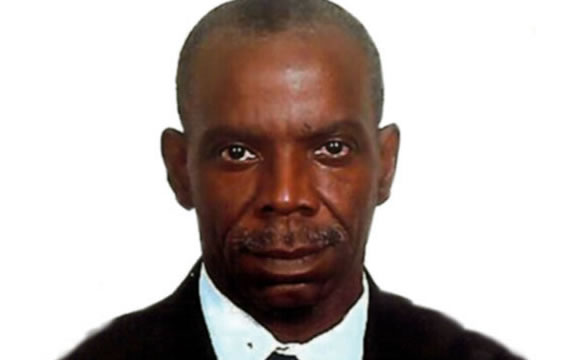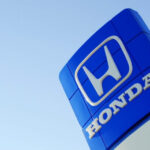
You may have seen the way the West, mostly North Atlantic Treaty Organisation nations, fly the blue and yellow colours of Ukraine flag on their major landmarks, last Friday, February 24, to mark the first anniversary of the nightmare Ukrainian-Russian War.
The Lincoln Memorial in Washington, D.C., New York’s Empire State Building, once the tallest building in the world, even the all-steel structure, Eiffel Tower in Paris, and Sydney House, Australia, were draped in solidarity with Ukraine, trapped in a needless war.
Less than one month ago, America shot down a Chinese balloon. And at the behest of Prime Minister Justin Trudeau, America shot down another balloon that was floating in the Yukon Mountains in Canada’s Northwest region.
These acts prove that America cannot tolerate what it demands of Russian President Vladimir Putin, who unfortunately lacks the public relations savvy to prosecute and win his war in the court of public opinion.
The first sentence in the preamble of the Constitution of United Nations Educational, Scientific and Cultural Organisation, culled from the vedic literature, says, “War begins in the minds of men,” adding that “it is in the minds of men that the defences of peace must be constructed.”
The nexus between Putin’s lack of savvy for public relations and war beginning and ending in the minds of men is that the minds of men is the real battleground of war. And wars are won or lost in the mind before the physical manifestations in the war theatre.
America’s capability to transform the physical fights with armoured tanks, rifles, bombs and fighter jets into a media war, which it is winning hands-down, is putting Putin and Russia in very bad light.
Christiane Amanpour of CNN International TV network, who was despatched to Ukraine ahead of the war anniversaries, got Nina, a historian and great-grand-daughter of Nikita Kruschchev, former Secretary-General of the Communist Party of the Soviet Union, and de-facto ruler of Union of Soviet Socialist Republics, on TV to somewhat put Putin down for “invading” Ukraine.
Nina, a professor of International Affairs in New York City, suggested there is a streak of megalomania in Putin, whom she thinks regards himself as the latest of Russian Greats, like Peter The Great, who co-ruled with his blind father, Vastly II, or Ivan The Great, who became Tsar at age 10.
She offers the British Broadcasting Corporation the following assessment: “I think we are entering a very, very shaky situation in Russia right now.” She once accused the Russian police and security services under Putin of behaving as if they were defending their motherland in the way they treated protesters who demanded the release of opposition leader, Alexei Navalny, who was once allegedly poisoned by the Russian state.
In solidarity with Ukraine, BBC describes the war as “Putin’s War,” and blatant action against international law, derived from 1648 Treaty of Westphalia, which recognises the territorial integrity of nations of the world.
BBC ran a documentary on the war, showing flying missiles, flaming houses, with a dirge as background music. But the BBC mercifully stopped short of showing gory pictures of bodies of the dead on the streets.
CNN has become quite adept at garish display of debris of shelled buildings and infrastructure, bunkers and hiding places of Ukrainian refugees, and of corpses and broken limbs of civilian Ukrainian victims of the war.
Indeed, CNN headlines the Ukrainian-Russian war as “Russia’s War on Ukraine,” thus positioning Ukraine as the underdog that is suffering under the wilful temperament of the bully Russian superdog.
And while America is calling up NATO allies to contribute at least materiel, if not men, to help Ukraine fight back Russia, it is putting China in bad light for expressing solidarity with Putin and offering to provide arms and ammunition for the Russian Federation.
It’s probably symbolic that Chinese President Xi Jiang visited Putin a day before the anniversary of the invasion, a public display of support for a neighbour with whom China shares the longest stretch of border.
America has called out and imposed sanctions on countries and international companies that are doing business with Russia. It is raising tariffs against Russian metals, minerals and chemicals being imported into America.
On the first anniversary of the war, America announced a $2bn aid package, which those who should know suggest is probably a secret package of war support and arsenal. It probably is.
To be sure, Russia’s invasion of Ukraine territory is a bit excessive and even unacceptable. But the argument of Russia may be in the military theory that offence is maybe the best line of defence.
Even the 96th Communications Squadron of the American military appropriated a quote attributed to Roman General Vegetius, which says, “Si vis Pacem, Para Bellum,” which is Latin for, “If You Want Peace, Prepare For War!”
American citizen, Bill Browder, turned British investor, who is CEO of Heritage Capital Management that was once the largest portfolio investor in Russia, is of the opinion that the West, led by America, is equally as guilty of blame for the Ukrainian-Russian war that has had extensive negative effects on Ukraine and the rest of the world.
Russia and Ukraine are the two largest producers of wheat, from which flour that is used in making the staple, bread and other confectioneries are made. Russia’s gas, transported through Nordstream I and Nordstream II pipelines, supply substantial gas to some Western European economies, including Germany.
The Russian and Ukraine palaver started way before 2022. In 1989, the Berlin Wall fell, signalling the end of the empire of the USSR that eventually fell down flat, like the Wall of Jericho, in December 1991.
After Soviet Union nuclear weapons were dismantled and removed from Ukraine, Russia, Britain, and America agreed to maintain the territorial integrity of Ukraine. In 2007, Ukraine sought to join NATO, the military alliance of Western countries.
NATO initially refused. But because the younger American President, George Bush, wanted Ukraine admitted into NATO, issued a tricky statement that says, “(Ukraine and Georgia, former USSR states), will be members of NATO.”
Chukchi Peninsular, Russia’s easternmost border, across the Bering Strait, is just 58 miles away from (probably nuclear weapon ridden) Steward Peninsular, the westernmost border of America, in the state of Alaska.
The prospect of nuclear weapons on Russia’s western flank close to Ukraine may be too much of a security risk to Russia. In 1962, America too could not accept USSR deployment of ballistic missiles in Cuba, which is even 90 miles away from America.
The Donbas, Ukraine’s Eastern region, comprises largely ethnic Russians who may easily enter and compromise the internal security of Russia without being noticed. After a few verbal skirmishes, and when it seemed like Ukraine, yet to be admitted, seemed intent in joining NATO, President Putin took action
But instead of formally declaring war on Ukraine, Putin commenced “special military operations” on February 24, 2022. This reminds one of the deceitful “police action” that the regime of General Yakubu Gowon declared on Biafra in 1967.
Anyway, Russia needs to pull back from Ukraine, while Western nations, led by America, Russia’s archenemy, must provide assurances that they will not use Ukraine to pose a threat to Russia.





